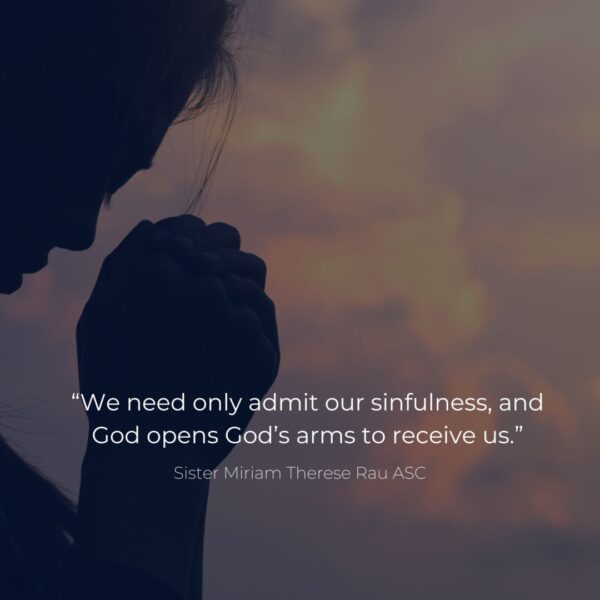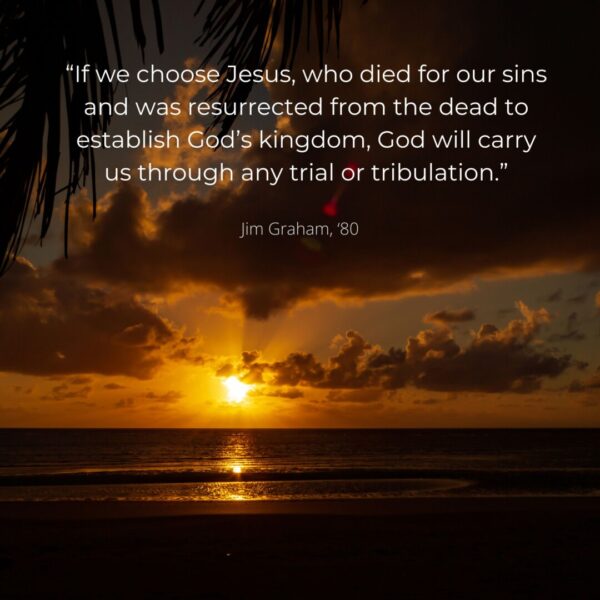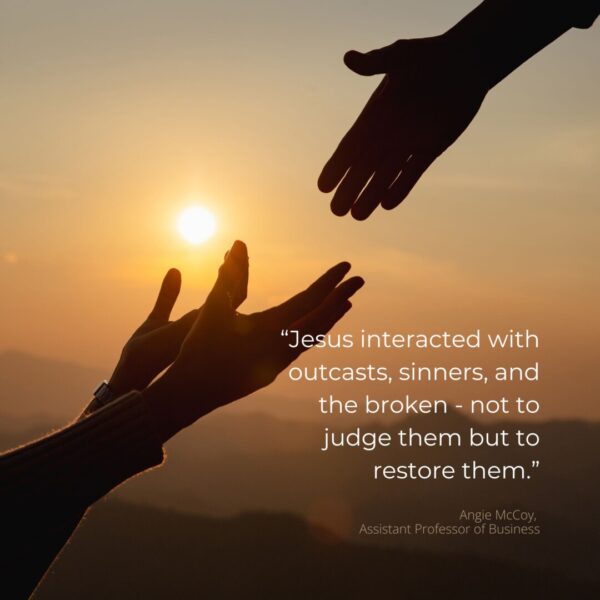In this fifth week of Lent, as we journey closer to Holy Week, these reflections invite us to contemplate God’s merciful love and the transformative power of forgiveness.
Through scripture passages that highlight Jesus’s compassion toward sinners and God’s faithfulness to His covenant promises, we are challenged to move beyond judgment toward a deeper understanding of divine grace that renews our hearts and relationships.

April 6: Fifth Sunday of Lent
Isaiah 43: 16-21; Phil 3:8-14; John 8: 1-11
The Scribes and Pharisees were plotting to trap Jesus. They brought a woman, whom they said had been caught in adultery. They asked Jesus, “Teacher, this woman has been caught in adultery. Moses commanded us to stone such a one. What do you say?”
If Jesus answered, “Stone her,” the people would think that this rabbi who preached compassion and forgiveness had changed. If Jesus said, “Don’t stone her,” the Pharisees and Scribes would arrest him. Jesus bent down and began writing with his finger on the ground. Jesus said, “Let the one without sin, cast the first stone.” After everyone walked away Jesus tenderly asked the trembling woman, “Has no one condemned you?” She answered, “No one, Sir.” “Neither do I condemn you. Go and sin no more.”
In addressing the woman in this manner, Jesus demonstrated what we are reminded of by Isaiah in the first reading, “…See I am doing something new.” For the crowd listening, for you and me, lessons abound.
1. Our God is the God of 2nd, 3rd, and 4th chances. We need only admit our sinfulness, and God opens God’s arms to receive us.
2. Because Jesus shows such love for me, I want to “pass it forward” to my brothers and sisters. I want to imitate Jesus, so that, like Paul, in the second reading, Jesus takes possession of me.
Sister Miriam Therese Rau, ASC

April 7: Monday, Fifth Week of Lent
Daniel 13:1 – 9, 15 – 17, 19 – 30, 33 – 62; John 8:1 – 11
In John, Jesus stops the crowd from stoning a woman by saying, “Let the one without sin throw the first stone.” Instead of judgment, Jesus shows mercy and invites self-reflection. This passage reminds us that only God can judge, and His mercy is more significant than our mistakes. Like Jesus, we should choose compassion over condemnation, knowing we all need grace. True justice isn’t about punishment but about transformation and forgiveness.
Colby Schreiner, student

April 8: Tuesday, Fifth Week of Lent
Numbers 21:4 – 9; John 8:21 – 30
In the Book of Numbers, the Israelites are tired of wandering the desert on their journey, and they begin to complain. As we reflect on our own Lenten journey this year, how have we complained amidst prayer, fasting, and almsgiving? In the Gospel of John, Jesus says, “You are from beneath; I am from above: you are of this world; I am not of this world.” Jesus asks us to daily embark on this journey from what is beneath, to what is above.
Mason Lubbers, seminarian

April 9: Wednesday, Fifth Week of Lent
Daniel 3:14 – 20, 24 – 25, 28; John 8:31- 42
I doubt none of us have been thrown into a furnace of blazing fire like Shadrach, Meshach, and Abednego (Daniel); however, we all face trials/tribulations. We can choose to be a slave to sin or be set free from sin as John writes. If we choose Jesus, who died for our sins and was resurrected from the dead to establish God’s kingdom, God will carry us through any trial/tribulation. From personal experience, God has carried me through undesired and unexpected trials/tribulations, which has grown my faith and spiritual maturity in God, Jesus Christ, and the Holy Spirit in ways difficult to explain. The same can be true for you. Trust God!
Jim Graham ‘80

April 10: Thursday, Fifth Week of Lent
Genesis 17:3 – 9; John 8:51 – 59
In Genesis, God makes a profound covenant with Abraham, promising to make him the father of nations and followers with Abraham’s obedience. This passage reminds us of God’s faithfulness and the importance of our response to his call. It challenges us to consider how we “keep” our covenant with God in our daily lives and how we pass on this faith to future generations. This passage also encourages us to trust in God’s promises, even when they seem impossible from our limited perspective. Praise the Lord!
Paul Kapalata ‘10

April 11: Friday, Fifth Week of Lent
Jeremiah 20:10 – 13; John 10:31 – 42
Society has a way of constantly finding fault in others. Whether through harsh criticism, unrealistic expectations, or public shaming, people often judge without understanding. This tendency fosters division, resentment, and a culture where no one feels truly valued. The secular world thrives on pointing out flaws yet rarely offers grace.
In contrast, Jeremiah and John offer Jesus’ message of hope. Where society condemns, Jesus forgives. Where the world sees failure, He sees potential. Jesus interacted with outcasts, sinners, and the broken — not to judge them but to restore them. His sacrifice on the cross reminds us that we are more than our mistakes.
When we embrace Christ’s perspective, we move beyond criticism to compassion. Instead of tearing others down, seek to lift them up. Commit to living out God’s plan for you.
Angie McCoy, assistant professor of business

April 12: Saturday, Fifth Week of Lent
Ezekiel 37:21 – 28; John 11:45 – 57
Reflecting on John, we read that many “had seen what Jesus did and believed in him.” Though we are believers in what Jesus gives to us and trust in him, we must not get so caught up in the chaos of this world not to see the signs before us that bring us hope and solidify our belief. God sacrificed his son to give us everlasting life and in this season of remembrance we should be focused on the signs of hope.
Carla and Jeff Weible, parents of a Newman student

View all Lenten reflections
Read all of the 2025 Lenten reflections from Newman University community members.

